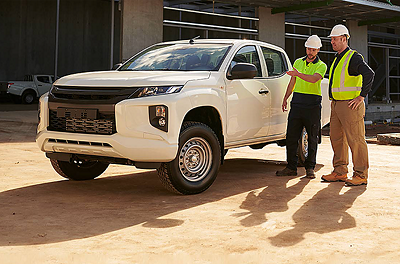Get familiar with the costs
Research the market price for the vehicle you’re interested in before you go to a dealer, so you know what to expect and are prepared to negotiate. The price of the vehicle under finance might be higher than the market value, often so the dealer’s finance provider can cover the costs of lower interest rates or other benefits offered in the proposal.
Confirm delivery times
Supply chain hold-ups can be common. Make sure you understand how long it will take for your vehicle to arrive and if the agreed price will apply regardless of delivery time. Some models have a much shorter wait period than others, which means you can upgrade sooner.
Choose how to get financed
There are two main ways you can finance your business vehicle:
- A bank or other finance provider
- Directly through the car dealer
Consider the different finance options available—like equipment loans, hire purchase, finance leases or operating leases—and take the time to understand and compare them, to pick the best option for your situation. To maximise savings, consider negotiating the price of your vehicle and your finance arrangement separately.
Get a quote
Your quote should include the type of finance agreement, the cost of the vehicle, all fees, the term of the loan, interest rate, repayments and the balloon or residual payment if you have one.
A balloon or residual payment is a lump sum you pay at the end of your loan term that covers any remaining money owing. The benefit of the balloon payment is that it lowers the repayment amount to help with business cash flow, but you may pay more interest over the term.
Pay attention to additional costs, like monthly account fees, as they can add up over time. It’s important to understand exactly what’s included in your agreement and what makes up your repayments.
Look at sustainable options
When you apply for a quote, ask about what sustainability options the finance provider offers. Some may give you the option to offset your vehicle’s estimated emissions for a certain period or even the life of the loan. They may also offer a discount for choosing an energy-efficient vehicle.
If you’re thinking about sustainability in your business but aren’t sure where to start, check out our Sustainability Plan Template.
Understand any restrictions and conditions
Maintenance plans, additional warranties, insurances and optional extras may be included as conditions of the offer. Make sure you know what these extras are and decide if they meet your needs and budget.
Get pre-approval for your financing
If you decide to finance your vehicle from somewhere other than where you buy it, you’ll need pre-approval before purchase. Pre-approval from a bank or other finance provider effectively gives you a budget for when you negotiate with the manufacturer or dealer.
Think about tax implications
There are other potential tax benefits in financing a business vehicle, including claiming depreciation and a deduction for interest charges, or a credit for the goods and services tax (GST) paid. Consider talking to a financial adviser, tax accountant or tax adviser for advice.
If you go ahead with finance for a vehicle, make sure you have a clear understanding of what the total after tax implications will be, what the finance option involves, and what will best suit your business goals and budget.

